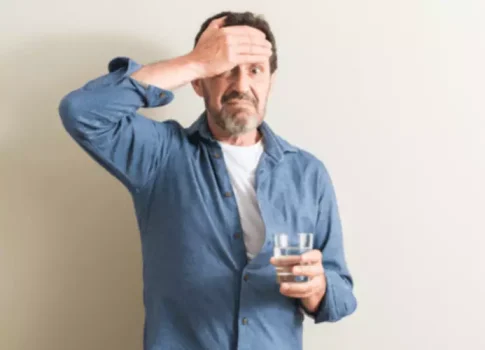

Although alcohol makes you fall asleep faster, it interrupts your natural sleep-wake cycle (or circadian rhythm). Alcohol dramatically impacts the quality and quantity of rest you get, further contributing to hangover symptoms. As the alcohol is metabolized and wears off, your brain works to restore chemical balance. It lowers levels of GABA—making you feel less calm—and boosts glutamate, which increases anxiety. Hangover anxiety can also arise as the brain adjusts to the mental effects of alcohol.

This response is primarily due to alcohol’s impact on the nervous system. Alcohol affects the body’s production of vasopressin, a hormone that helps alcohol rehab regulate blood pressure and fluid balance. Yes, alcohol has a diuretic effect, which can increase urine production and potentially lead to dehydration. It is important to drink water alongside alcohol to maintain hydration levels.

Various factors contribute to the warm feeling, including alcohol content, volume consumed, and personal tolerance. However, the specific type of alcohol does not play a significant role in this sensation. Some people receiving treatment for cancer have hot flashes and night sweats.

Make sure you drink enough fluids before, during and after drinking alcohol to avoid dehydration. Sports drinks and bouillon aregood choicesto help your body replace the water, salt and potassium you lost when you were drunk. You may feel like you have a high temperature after drinking alcohol because of how alcohol affects your brain. Medical professionals think thatalcohol tricks your brain cellsinto thinking that you are warm. To keep health risks from alcohol at a low level, it’s important to follow the guidelines. The UK Department of Health’s Low Risk Drinking Guidelines advise that it is safest not to drink over 14 units a week1.
Another factor contributing to the sensation of heat while drinking wine is its impact on your body’s heat regulation system. Alcohol acts as a vasodilator, interfering with your body’s ability to retain heat and regulate why does wine make me hot its internal temperature effectively. Feeling hot while drinking alcohol is not necessarily indicative of a higher tolerance. Tolerance to the effects of alcohol depends on various factors, including frequency and amount of consumption.
Alcohol is also high in calories and can lead to weight gain, which is another risk factor for high blood pressure. Alcohol can stop brain receptors that help regulate blood pressure from working properly. Recovery Ranger is a website that offers direction and support for those seeking to overcome addiction and achieve lasting sobriety. Our team of specialists helps individuals navigate the recovery process and stay motivated.
It’s crucial for women going through menopause to make informed choices about alcohol consumption. If you choose to drink, it’s generally recommended to do so in moderation. The definition of moderate drinking may vary, but it’s often defined as up to one drink per day.

When the vessels expand, you might feel even warmer because of the increased blood flow inside the blood vessels beneath your skin. You may also find that you sweat more after you drink alcohol, because of increased blood flow in the vessels under your skin. It’s a common myth that alcohol raises your internal body temperature, but studies show it can actually lower it. Alcohol consumption affects your ability to regulate your body temperature and also dilates blood vessels, which contributes to feelings of warmth. If you get hot because of alcohol flushing, you have an ineffective liver enzyme to blame. Supplements like Sunset Alcohol Flush support can help support your liver when drinking alcohol, and helps breakdown acetaldehyde much quicker.
According to the National Institute on Alcohol Abuse and Alcoholism4, it’s thought that with reduced quantities of this enzyme, certain by-products build up in the body which cause the flushing. The marked vasodilation in people with this genetic trait increases the volume in the blood vessels and reduces blood pressure – making them prone to low blood pressure5 and dizziness. When Health Shots got in touch with Dr Jinendra Jain, Consultant Physician, Wockhardt Hospital, Mira Road, Mumbai, and asked why people often experience sweating or hot flashes after drinking alcohol.